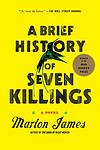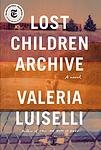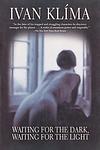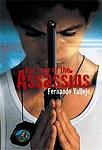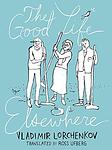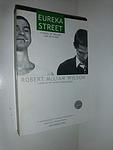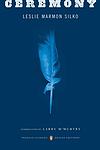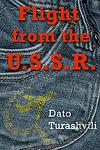The Greatest "Political, Fiction, Social & Cultural Fiction" Books Since 1990
Click to learn how this list is calculated.
This list represents a comprehensive and trusted collection of the greatest books. Developed through a specialized algorithm, it brings together 300 'best of' book lists to form a definitive guide to the world's most acclaimed books. For those interested in how these books are chosen, additional details can be found on the rankings page.
Genres
The "Political" category of books encompasses works that explore the theory, practice, and history of government and politics. These books may cover topics such as political ideologies, political systems, political institutions, political movements, and political leaders. They may also examine the relationship between politics and other areas of society, such as economics, culture, and international relations. Political books can be both informative and thought-provoking, offering readers insights into the complexities of the political world and the challenges of governing in a democratic society.
Social & Cultural Fiction is a literary category that encompasses novels and stories that delve into the complexities of society and culture, exploring themes such as class, race, gender, and identity within specific social contexts. These narratives often provide a lens through which readers can examine the intricacies of human relationships and the impact of cultural norms and societal structures on individuals and communities. By offering a fictional yet reflective portrayal of real-world social dynamics, this genre invites readers to gain a deeper understanding of the diverse experiences that shape our world. Authors in this category frequently use their characters and settings to comment on contemporary issues, challenge prevailing ideologies, and provoke thought about the possibility of social change, making Social & Cultural Fiction a powerful tool for empathy and a mirror for the ever-evolving human condition.
Countries
Date Range
Reading Statistics
Click the button below to see how many of these books you've read!
Download
If you're interested in downloading this list as a CSV file for use in a spreadsheet application, you can easily do so by clicking the button below. Please note that to ensure a manageable file size and faster download, the CSV will include details for only the first 500 books.
Download-
1. White Teeth by Zadie Smith
This novel follows the lives of two friends, a working-class Englishman and a Bangladeshi Muslim, living in London. The story explores the complex relationships between people of different races, cultures, and generations in modern Britain, with themes of identity, immigration, and the cultural and social changes that have shaped the country. The narrative is enriched by the characters' personal histories and the historical events that have shaped their lives.
-
2. American Pastoral by Philip Roth
This novel tells the story of Seymour "Swede" Levov, a successful Jewish-American businessman and former high school athlete from Newark, New Jersey. Levov's happy and conventional upper middle class life is ruined by the domestic social and political turmoil of the 1960s during the presidency of Lyndon B. Johnson, which in the novel is seen through the eyes of the narrator, Nathan Zuckerman, a budding writer who idolizes the Levovs. The novel portrays the impact of this turmoil on Levov and his family, particularly his rebellious daughter who becomes involved in revolutionary political activities.
-
3. Underworld by Don DeLillo
"Underworld" is a sweeping narrative that spans from the 1950s to the end of the 20th century, exploring the interconnectedness of events and the impact of the Cold War on American society. The story revolves around a diverse group of characters, including a waste management executive, a graffiti artist, a nun, and a baseball collector, among others. These characters' lives intertwine in unexpected ways, illustrating the complex web of relationships and influences that shape our world. The novel is renowned for its vivid portrayal of historical events and its profound examination of themes such as memory, technology, and waste.
-
4. The Children of Men by P. D. James
Set in a dystopian future where mankind has become infertile, the novel centers on a history professor who becomes involved with a group of revolutionaries seeking to overthrow the oppressive government. As the world descends into chaos due to the impending extinction of the human race, a miraculous pregnancy offers a glimmer of hope. The professor must protect the pregnant woman and navigate the dangerous political landscape, while grappling with the implications of a world without children.
-
5. The Line of Beauty by Alan Hollinghurst
Set in the 1980s during the era of Margaret Thatcher's conservative government in Britain, this novel follows the life of a young gay man named Nick Guest. Coming from a middle-class background, he moves into the home of his wealthy friend's family and becomes infatuated with the opulence and power of the upper class. As he navigates his way through this new world, he also explores his sexuality, all while dealing with the societal and political implications of the AIDS crisis.
-
6. On Beauty by Zadie Smith
This novel is a contemporary, multicultural exploration of family life, love, and identity. It follows the lives of two mixed-race families, the Belseys and the Kipps, who are linked by their shared professions in academia and a complex web of marital and extramarital relationships. The story is set against the backdrop of Wellington, a fictional New England town, and explores themes of race, class, and cultural clash. It also delves into the world of academia, examining the politics and conflicts that arise in that environment.
-
7. The White Tiger by Aravind Adiga
"The White Tiger" is a darkly humorous novel set in modern-day India that explores the country's class struggle through the eyes of an ambitious and cunning protagonist. Born in a poor village, he moves to Delhi to work as a chauffeur for a rich family. He eventually breaks free from his life of servitude by committing an act of shocking violence, and uses his newfound freedom to become a successful entrepreneur in Bangalore. The story, told through a series of letters written to the Chinese Premier, is a scathing critique of India's social and economic disparities, and the corruption that permeates all levels of society.
-
8. A Brief History of Seven Killings by Marlon James
"A Brief History of Seven Killings" is a multi-voiced novel that explores the attempted assassination of a world-famous reggae singer and its aftermath. The narrative spans decades, starting from the turbulent 1970s in Jamaica through the crack wars in 1980s New York to the changing world of the 1990s. The story is told from the perspectives of various characters, including gangsters, journalists, and CIA agents, providing a complex and gritty insight into the violent underbelly of Jamaican politics and the far-reaching influence of the drug trade.
-
9. Happy Moscow by Andrey Platonov
"Happy Moscow" is a satirical novel set in the Soviet Union during the height of Stalinist rule, following the life of a young woman, Moscow Chestnova, who is named after the capital city. Despite the harsh realities of life under an authoritarian regime, she maintains a positive and optimistic outlook, symbolizing the Soviet Union's propaganda that promoted an image of a happy and prosperous society. The novel, through its characters and their experiences, explores the paradoxes and contradictions of the Soviet society, challenging the official narrative of happiness and prosperity.
-
10. Lost Children Archive by Valeria Luiselli
"Lost Children Archive" by Valeria Luiselli is a novel that follows a family on a road trip from New York to Arizona. The parents are documentarians and are working on separate projects, while the children are preoccupied with their own interests. As they travel, the family becomes increasingly aware of the migrant crisis and the children's obsession with finding lost things takes on a new meaning. The novel explores themes of family, identity, and the power of storytelling.
-
11. Disappearance by David Dabydeen
"Disappearance" is a novel about a young Indian man who moves to England to work as a carpenter in order to send money back to his family in India. However, he finds himself isolated and struggling to adapt to the unfamiliar culture, language, and climate. As he grapples with his identity and sense of belonging, he also becomes involved with an older woman, leading to a complex and fraught relationship. The book explores themes of immigration, cultural dislocation, race, and identity.
-
12. Waiting for the Dark, Waiting for the Light by Ivan Klíma
The novel is set in the twilight of Communist rule in Czechoslovakia and follows the life of a television cameraman named Pavel. Despite his dreams of becoming a filmmaker and capturing the truth, he is trapped in a job that requires him to distort it. As the regime starts to crumble, Pavel grapples with the opportunities and challenges that freedom brings. He is forced to confront his past, his moral choices, and his dreams, leading to a deep exploration of the human condition and the struggle for personal and artistic freedom.
-
13. Our Lady of the Assassins by Fernando Vallejo
This novel is a dark and gripping exploration of life in Medellín, Colombia, during the height of the drug wars. The protagonist, a middle-aged writer, returns home after many years abroad, only to find his city ravaged by violence and death. He falls in love with two teenage assassins, who guide him through the underworld of the city, exposing him to the brutal realities of life in a place where human life has lost all value. The story is a bleak commentary on the devastating effects of drug trafficking and political corruption on society.
-
14. As If I Am Not There by Slavenka Drakulic
The book is a harrowing tale of a young woman's survival in a Balkan concentration camp during the Bosnian War. The protagonist, a school teacher, is taken from her village and forced into sexual slavery by the enemy soldiers. It's a stark exploration of the brutalities of war, the dehumanization of individuals, and the resilience of the human spirit. The narrative is a poignant commentary on the horrors of war and the resilience of women in the face of unimaginable atrocities.
-
15. Home Fire by Kamila Shamsie
"Home Fire" is a contemporary reimagining of Sophocles' Antigone set against the backdrop of modern-day London and Syria. The novel explores the lives of five characters caught in a complex web of love, loyalty, and sacrifice. The story revolves around two British-Pakistani families, each struggling with their own dilemmas related to identity, radicalism, and loyalty. One family is headed by a powerful politician who disowns his jihadist son, while the other consists of three orphaned siblings whose lives are turned upside down when their brother is accused of joining ISIS. The novel explores the consequences of their actions, questioning the extent to which one can go for love and loyalty.
-
16. The Reluctant Fundamentalist by Mohsin Hamid
The novel is a monologue by a young Pakistani man, Changez, who tells his life story to an American stranger in a café in Lahore. Changez recounts his journey from a scholarship student at Princeton to a high-flying job in a prestigious New York valuation firm and his subsequent disillusionment with the American Dream post 9/11. The story explores themes of identity, love, and the shifting global power dynamics, as Changez grapples with his feelings towards America, his native Pakistan, and his love interest, Erica. The narrative ends ambiguously, leaving the reader to interpret the true nature of Changez and his American listener's relationship.
-
17. A Geração Da Utopia by Pepetela
"A Geração Da Utopia" by Pepetela is a thought-provoking novel that explores the lives of a group of young Angolan intellectuals during the country's fight for independence. Set in the 1970s, the story follows the characters as they navigate through political turmoil, personal relationships, and their own dreams of building a utopian society. With a blend of historical context and fictional elements, the book delves into themes of idealism, disillusionment, and the complexities of revolution.
-
18. Gb84 by David Peace
"GB84" by David Peace is a gripping novel set during the 1984-1985 miners' strike in Britain. The story follows the lives of various characters, including union leaders, miners, and government officials, as they navigate the brutal and violent clash between the National Union of Mineworkers and the Conservative government. With its intense portrayal of the social, political, and economic turmoil of the time, the book offers a raw and realistic depiction of the struggles faced by both the striking miners and those in power.
-
19. Somersault by Kenzaburō Ōe
The novel explores the aftermath of a failed doomsday cult in Japan, led by two men who had prophesied an apocalypse that never occurred. After their prophecy fails, they attempt to disband the cult but struggle as their followers resist and violence ensues. The leaders try to rebuild their lives amidst the chaos, grappling with their guilt and the consequences of their actions. The book is a deep exploration of faith, redemption, and the power of belief.
-
20. The Ministry Of Pain by Dubravka Ugrešić
"The Ministry of Pain" is a powerful and introspective novel that follows the life of Tanja Lucić, a Croatian immigrant and former professor of literature, as she navigates the challenges of living in exile in Amsterdam. Through Tanja's perspective, the book explores themes of loss, displacement, and the struggle to preserve one's identity in a foreign land. With a blend of dark humor and poignant observations, the author delves into the complexities of memory, trauma, and the enduring pain of war, offering a profound exploration of the human condition.
-
21. The Good Life Elsewhere by Vladimir Lorchenkov
"The Good Life Elsewhere" is a darkly humorous and satirical novel that follows a group of Moldovan villagers who embark on a chaotic journey to Italy in search of a better life. Through their misadventures, the author exposes the harsh realities of poverty, corruption, and the desperate measures people are willing to take in pursuit of a brighter future. With a blend of absurdity and poignant social commentary, the novel offers a compelling exploration of the human condition and the universal desire for a better life.
-
22. Eureka Street by Robert McLiam Wilson
Set in Belfast during the tumultuous end of the Troubles, the novel is a tale of friendship, love, and the complexities of life in a city riven by political and sectarian strife. It follows the lives of two friends from different backgrounds—one Catholic, one Protestant—as they navigate the challenges of daily life amidst the violence and social upheaval of their environment. Their personal stories of romance, loss, and the search for meaning are interwoven with dark humor and a deep sense of humanity, offering a poignant reflection on the resilience of the human spirit in the face of adversity.
-
23. The Almanac of the Dead by Leslie Marmon Silko
"The Almanac of the Dead" is a complex narrative that explores the histories and struggles of indigenous peoples in the Americas, particularly in the Southwestern United States and Central America. The story is centered around a 500-year-old manuscript known as "the almanac," which prophesizes a massive, revolutionary upheaval led by the indigenous people against the oppressive forces of capitalism and colonialism. The novel delves into themes of resistance, survival, and the power of storytelling, weaving together a multitude of interconnected narratives and characters.
-
24. Flight From The Ussr by Dato Turashvili
"Flight From The USSR" is a gripping and poignant memoir that follows the life of a young Georgian boy, who grows up under the oppressive regime of the Soviet Union. As he navigates the complexities of his turbulent homeland, the protagonist finds solace in his love for literature and dreams of escaping to the West. Faced with numerous challenges and heart-wrenching choices, he embarks on a daring journey that takes him across borders, revealing the resilience of the human spirit in the face of adversity.
-
25. Voroshilovgrad by Serhiy Zhadan
"Voroshilovgrad" is a powerful novel set in post-Soviet Ukraine, following the lives of several characters who are grappling with the consequences of war, corruption, and economic decline. The story explores themes of identity, love, and the struggle to find meaning in a society that is rapidly changing. Through vivid and poetic prose, the author paints a haunting picture of a city and its inhabitants, capturing the complexities and contradictions of life in a country in transition.
Reading Statistics
Click the button below to see how many of these books you've read!
Download
If you're interested in downloading this list as a CSV file for use in a spreadsheet application, you can easily do so by clicking the button below. Please note that to ensure a manageable file size and faster download, the CSV will include details for only the first 500 books.
Download






